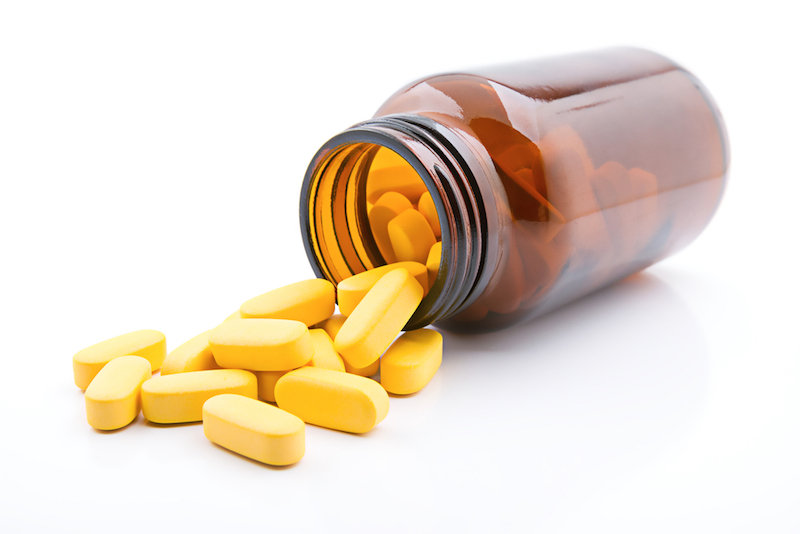Too Many People 'Self-Prescribe' Antibiotics, Experts Say

Get the world’s most fascinating discoveries delivered straight to your inbox.
You are now subscribed
Your newsletter sign-up was successful
Want to add more newsletters?

Delivered Daily
Daily Newsletter
Sign up for the latest discoveries, groundbreaking research and fascinating breakthroughs that impact you and the wider world direct to your inbox.

Once a week
Life's Little Mysteries
Feed your curiosity with an exclusive mystery every week, solved with science and delivered direct to your inbox before it's seen anywhere else.

Once a week
How It Works
Sign up to our free science & technology newsletter for your weekly fix of fascinating articles, quick quizzes, amazing images, and more

Delivered daily
Space.com Newsletter
Breaking space news, the latest updates on rocket launches, skywatching events and more!

Once a month
Watch This Space
Sign up to our monthly entertainment newsletter to keep up with all our coverage of the latest sci-fi and space movies, tv shows, games and books.

Once a week
Night Sky This Week
Discover this week's must-see night sky events, moon phases, and stunning astrophotos. Sign up for our skywatching newsletter and explore the universe with us!
Join the club
Get full access to premium articles, exclusive features and a growing list of member rewards.
Many Americans store leftover antibiotic drugs in their homes and say that if they got sick, they would take the antibiotics without going to their doctor first, a new study finds.
The findings are troubling, experts say, in part because when people self-diagnose and treat themselves, they often end up taking antibiotics when they don't need to, which may further the spread of antibiotic resistance, the researchers said.
"When people self-diagnose and self-prescribe antibiotics, it is likely that the therapy is unnecessary, because most often, these are upper-respiratory infections that are mostly caused by viruses," study researcher Dr. Larissa Grigoryan, an instructor of family and community medicine at Baylor College of Medicine in Texas, said in a statement. (Antibiotics do not kill viruses.)
And even if people do have a bacterial infection, they may not take the right drug for that particular infection. Or, they may not take the medicine for long enough, allowing some bacteria to survive, which fosters resistance to the drugs, the researchers said. [6 Superbugs to Watch Out For]
In the study, the researchers analyzed information from 400 patients who went to family practice clinics in Houston and were surveyed about their use of antibiotics.
About 25 percent of the patients said they would take antibiotics without contacting their doctor, 14 percent said they stored antibiotics in their home and 5 percent said they had actually taken antibiotics without a doctor's prescription in the past year, the study found.
Among those who took antibiotics without a prescription, 40 percent said they purchased the antibiotics at a store or pharmacy in the United States, 20 percent said they got them from a friend or relative, 12 percent said they took leftover medications and 4 percent said they used veterinary antibiotics meant for animals. (It is illegal for stores in the U.S. to sell antibiotics over the counter.)
Get the world’s most fascinating discoveries delivered straight to your inbox.
Among those who said they stored antibiotics at home, 74 percent said these drugs were left over from a previous prescription.
Efforts to combat antibiotic resistance have focused on curbing unnecessary prescriptions from doctors, but the new study suggests that attention should also be given to the problem of people taking antibiotics without a prescription, the researchers said.
In general, pople should take all of the antibiotics they are prescribed, and if for some reason they have left over medicine, they should throw it away, according to the Mayo Clinic.
The study is published online today (July 11) in the journal Antimicrobial Agents and Chemotherapy.
Original article on Live Science.

Rachael is a Live Science contributor, and was a former channel editor and senior writer for Live Science between 2010 and 2022. She has a master's degree in journalism from New York University's Science, Health and Environmental Reporting Program. She also holds a B.S. in molecular biology and an M.S. in biology from the University of California, San Diego. Her work has appeared in Scienceline, The Washington Post and Scientific American.
 Live Science Plus
Live Science Plus










